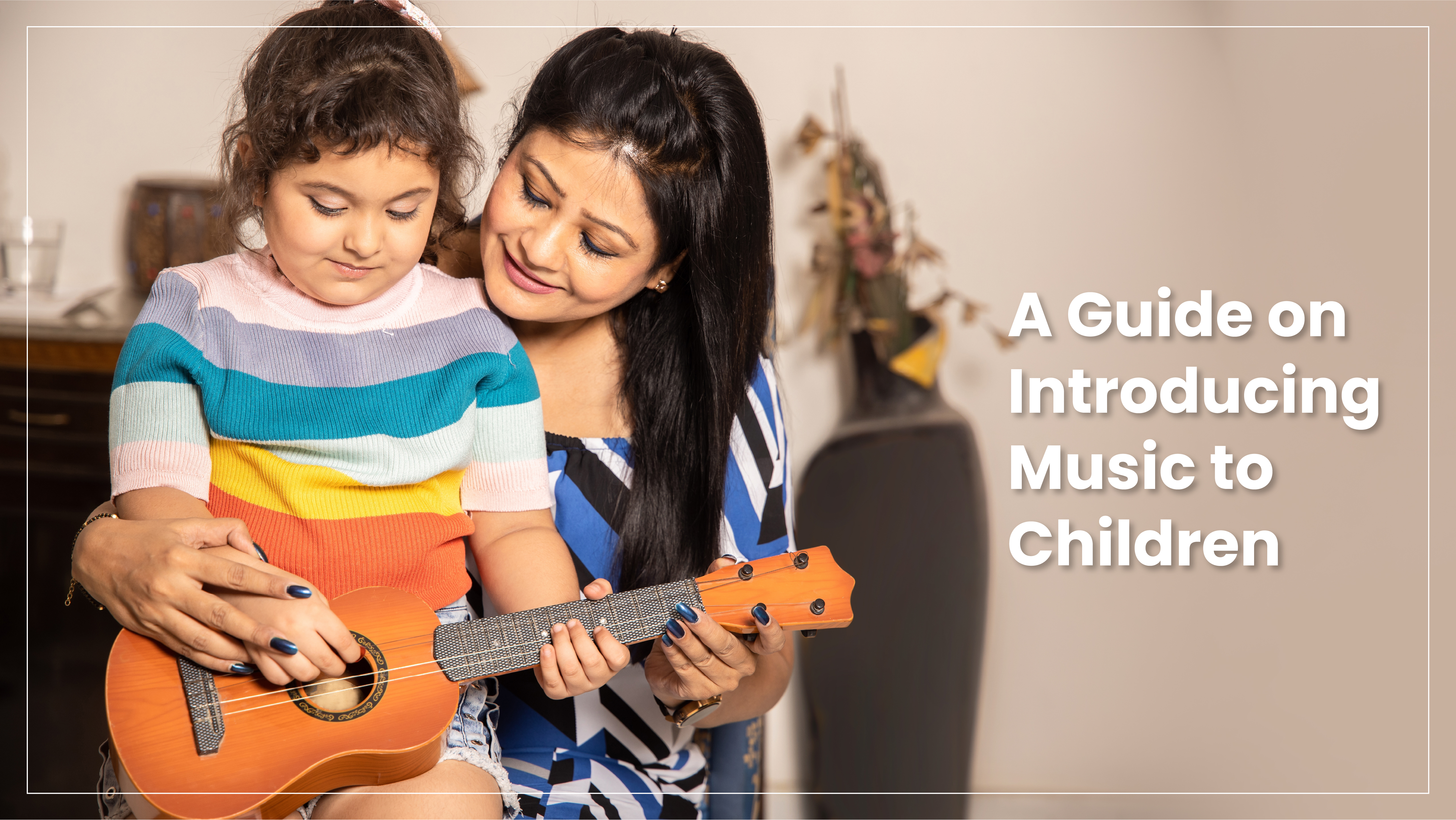The melodies that children hear play a key role in cognitive development. Music harmonises the soul, invokes emotions, and enhances neural abilities for a lifetime. This is why music serves as a source of enrichment for young minds. Singing favourite soundtracks to toddlers strengthens their problem-solving skills and emotional resilience. Parents can perform multiple activities to introduce music to children.
Willing to find out? Then scroll down.
What is the Right Age to Start Music Lessons for Children?
Children are born musical, quickly falling asleep to lullabies. It is never too early to introduce children to music. Even starting at 6 months or earlier can spark their interest. By the age of 2, they can recognise songs and instruments. The right age to start music lessons for children is between the ages of 4 and 7 when they can grasp the basics and their minds and hands are developed enough to start playing.
Fun Activities to Introduce Children to Music:
With encouragement and creativity, parents can kickstart their toddlers’ melodic journey. Here are seven incredible ways to introduce music to young children:
- Sing Along to Action Songs: Perennial songs for children like “If You are Happy and You Know It,” “Knees and Toes,” “Bingo,” and “Head” are excellent to get those wiggles out. They have stood the test of time and are filled with fun and memorable lyrics. Regular listening improves vocabulary and hand-eye coordination.
- Play Musical Games: Musical games are another ideal way to make children acquainted with melodies. Most of these games are folklore-inspired and often passed from one generation to the other. These games unleash the musical spirit of children while lighting up their kinaesthetic intelligence which is the ability to use one’s body skilfully to solve problems, create things, or express ideas and emotions.
- Recite Nursery Rhymes: Nursery rhymes are often the first type of music that children will listen to. The repetitive, short, melodic phrases of rhymes become ingrained in young minds. The catchy tunes help to develop a music appreciation. Hearing these rhymes in a soft, soothing voice is wonderful for comforting children and building a stronger bond.
- Turn On Background Music: Everything is more fun with music playing in the background. Whether doing daily chores or going to a family picnic, background music makes these moments even happier. Memories of these tasks will be cherished when a particular song is heard. This plays a vital role in cultivating a love for music.
- Make or Paint Musical Instruments: If youngsters have a knack for art, making or colouring musical instruments can be fun. Using everyday objects to create musical instruments ignites their creativity. For example, an empty tissue box with stretched rubber bands can resemble a guitar, while a box with pulses can be a customised shaker. Non-breakable utensils like steel pots and containers can be played like drums with a spatula for an impromptu jamming session.
- Watch a Performance: Do not miss out on the chance to expose children to live music. Seek out local bands that cater to a young audience. Summer concert series in the park are great for toddlers to experience music in a live setting while enjoying a picnic.
- Read Music-Oriented Books: There is a vast selection of musical storybooks waiting to be read, such as “Little Critter: Just a Little Music” by Mercer Mayer and “Wild Symphony” by Dan Brown. These not only make children enthusiastic about learning and playing music but also foster a habit of reading.
Benefits of Music Education for Children
Now that the techniques for introducing music to children are clear, here are some benefits:
- Music encourages neural development, leading to better academic success.
- Early exposure to melodies relieves the mind and helps children to concentrate.
- Music unlocks great lingual ability and enriches vocabulary.
- Since movement and music go hand in hand, regular listening improves motor skills.
- It helps to process complex emotions, bringing emotional maturity.
- Music elevates social bonding skills.
Bringing children and music together through fun activities has no downsides. The benefits of introducing music to children are boundless, from the pristine pleasure of listening to delicate sounds to acquiring new language and social skills from songs. In a nutshell, music enriches the lives of everyone.


Stay connected, stay informed, and thrive with Narayana Educational Institutions!
